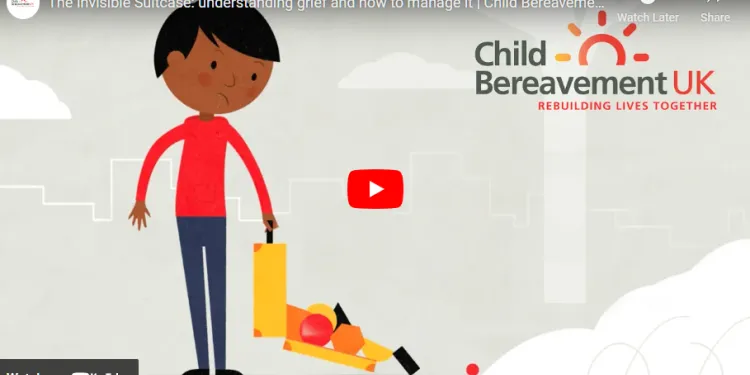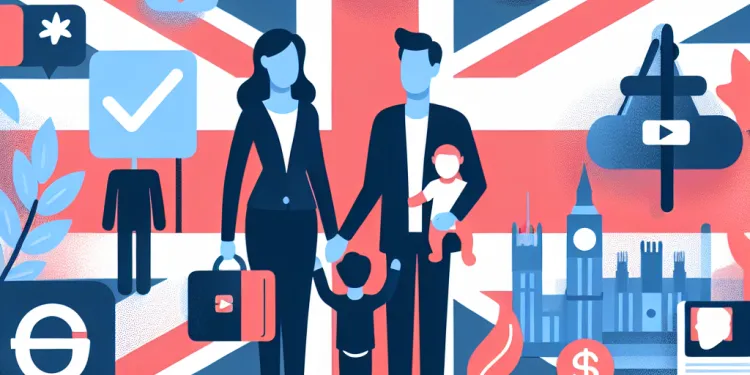
Find Help
More Items From Ergsy search
-

What is bereavement leave?
Relevance: 100%
-

Am I entitled to Bereavement Leave?
Relevance: 100%
-

Is bereavement leave the same as compassionate leave?
Relevance: 99%
-

Can I be denied bereavement leave?
Relevance: 96%
-

Do I get paid for bereavement leave?
Relevance: 96%
-

Can I extend my bereavement leave?
Relevance: 96%
-

Can bereavement leave be taken consecutively with other leaves?
Relevance: 94%
-

Are part-time employees entitled to bereavement leave?
Relevance: 93%
-

How should I request bereavement leave?
Relevance: 91%
-

Can bereavement leave be counted against my PTO?
Relevance: 90%
-

Does bereavement leave cover travel costs?
Relevance: 89%
-

What documentation might I need for bereavement leave?
Relevance: 87%
-

How many days of bereavement leave can I take?
Relevance: 87%
-

Can I take bereavement leave for the death of a close friend?
Relevance: 86%
-

Does bereavement leave cover funerals for cultures or religions with extended mourning periods?
Relevance: 80%
-

Child Bereavement
Relevance: 56%
-

Am I legally entitled to bereavement leave?
Relevance: 46%
-

Can I take bereavement leave if I am a contractor or freelancer?
Relevance: 40%
-

Navigating the Changes to Parental Leave Regulations
Relevance: 39%
-

Upcoming Changes to Parental Leave Policies in the UK
Relevance: 39%
-

Are gig workers entitled to sick leave?
Relevance: 37%
-

Who qualifies as an immediate family member for bereavement leave?
Relevance: 37%
-

Can the decision to leave WHO be reversed?
Relevance: 36%
-

Are there any protections for employees on maternity leave during redundancy?
Relevance: 36%
-

What if I need bereavement leave for multiple relatives at different times?
Relevance: 35%
-

What should I do if my employer denies my bereavement leave request unfairly?
Relevance: 35%
-

Can bereavement leave affect my job status or performance reviews?
Relevance: 35%
-

Is the US the only country to leave the WHO?
Relevance: 35%
-

What are the strategic implications of the US leaving WHO?
Relevance: 33%
-

Did all American states support the decision to leave WHO?
Relevance: 33%
-

Did Congress support the decision to leave the WHO?
Relevance: 32%
-

What impact does leaving WHO have on US public health policy?
Relevance: 32%
-

How does leaving the fire service before pension age affect my benefits?
Relevance: 32%
-

What are the health impacts of the US leaving WHO?
Relevance: 32%
-

Why did the US decide to leave the World Health Organization (WHO)?
Relevance: 31%
-

Did the US propose reforms to the WHO before deciding to leave?
Relevance: 31%
-

What are the financial implications of the US leaving WHO?
Relevance: 31%
-

What were the reasons given by the US leadership for leaving WHO?
Relevance: 30%
-

What was the global reaction to the US's decision to leave WHO?
Relevance: 30%
-

How did WHO respond to the US's announcement to leave?
Relevance: 23%
Understanding Bereavement Leave
Bereavement leave, also known as compassionate leave, is time off work granted to employees following the death of a close family member or loved one. In the UK, there is no statutory right to a specific amount of paid bereavement leave, but employees are entitled to "reasonable" time off to deal with emergencies involving dependents, which includes the death of a dependent. It's important to understand your employer's specific policy on bereavement leave, as it may vary from the general guidelines.
Reviewing Company Policy
Before requesting bereavement leave, review your company’s employee handbook or internal HR policies regarding time off for bereavement. Some companies may have specific provisions, such as paid leave for a set number of days, while others may require you to use personal or sick leave. Understanding your employer's policy will help you make an informed request that aligns with their expectations and guidelines.
Approaching Your Manager
Once you've understood the policy, it’s time to approach your manager or HR department. It’s advisable to communicate with your manager as soon as possible after the bereavement occurs to ensure that arrangements can be made to cover your responsibilities at work. When discussing bereavement leave, be transparent, and specify your relationship to the deceased to justify the need for leave. While it's a personal subject, providing context can help your employer better understand your situation.
Formulating the Request
When formulating the request, be clear about how much time you think you’ll need. Consider not only the funeral but also other obligations such as planning, traveling, or supporting other family members. It’s reasonable to request additional time if the bereavement involves traveling a significant distance or if you play a major role in arranging the funeral. Be flexible and open to negotiating the amount of time off, if necessary.
Documenting Your Request
After your initial conversation, it’s a good idea to formalize your request in writing. This can be done via email or through your company’s HR system. Having a written record helps ensure that miscommunications don’t arise and provides a clear reference if needed. In your request, include the dates you plan to be away and any adjustments you're willing to make for critical work responsibilities. Keep the tone professional and courteous.
Returning to Work
When your bereavement leave ends, update your manager or HR about your return and express gratitude for their understanding during this difficult time. Upon returning, it may be helpful to have a meeting to catch up on work and align on any new priorities. Remember, the grieving process doesn't have a set timeline, so if you need additional support, such as flexible hours or additional leave, don’t hesitate to discuss this with your employer.
What is Bereavement Leave?
Bereavement leave is time off work after someone close to you has died. Sometimes, it's called compassionate leave. In the UK, there are no rules about how many paid days off you get. But you can take "reasonable" time off for emergencies, like the death of someone you care for. Check what your work says about bereavement leave, as it might be different from other places.
Check Your Work’s Rules
Before asking for bereavement leave, look at your work’s employee book or ask the HR department. They might have rules about how many days you can take off. Some places pay you for these days, others might use vacation or sick days. Knowing the rules helps you ask for time off in the right way.
Talk to Your Boss
Once you know the rules, talk to your boss or HR. Do this soon after the person dies, so they can plan for your work while you’re away. Tell them who died and why you need time off. Sharing this helps them understand your need.
How to Ask for Leave
When asking for leave, say how much time you need. Think about the funeral, traveling, or helping your family. You might need more time if you have to go far or you are planning the funeral. Be ready to discuss and agree on the time off.
Write Down Your Request
After talking, write your request. You can email it or use your work's HR system. Writing it down helps everyone understand and remember what was agreed. In your message, list the days you’ll be away and how you can help with work if needed. Be polite and professional.
Going Back to Work
When going back to work, tell your boss or HR and thank them for their help. You might want to meet and catch up on work. There’s no set time for feeling better, so if you need more help, like working different hours, talk with your employer.
Frequently Asked Questions
What is bereavement leave?
Bereavement leave is time off from work that employees can take to grieve and manage affairs following the death of a family member or a loved one.
Who is eligible for bereavement leave?
Eligibility for bereavement leave typically depends on your employer's policy, which may specify relationships such as immediate family members.
How many days can I take for bereavement leave?
The number of days varies by company policy, but it typically ranges from three to five days. Always check your employer's specific policy.
How should I notify my manager about a bereavement leave request?
Notify your manager as soon as possible, either through a direct conversation, phone call, or email, explaining the situation briefly.
What information should I include in a bereavement leave request?
Include the relationship to the deceased, the date of passing, and the amount of leave you're requesting.
Do I need to provide documentation for bereavement leave?
Some employers may require documentation such as a death certificate or obituary. Check your company's policy for specifics.
Can bereavement leave be extended?
Sometimes bereavement leave can be extended depending on the employer's policy or at the manager's discretion.
Is bereavement leave paid?
Whether bereavement leave is paid or unpaid depends on the employer's policy. Some companies offer paid leave, while others may not.
Can bereavement leave be used for non-family members?
This depends on the company's policy. Some may allow bereavement leave for close friends or non-immediate family members.
What if I need more time off than the bereavement leave allows?
If you need more time, discuss alternative arrangements with your employer, such as using vacation days or unpaid leave.
Can bereavement leave be taken intermittently?
Policies vary, but some employers may allow bereavement leave to be taken intermittently rather than consecutively.
What if the bereavement leave policy is not clear at my workplace?
If the policy is unclear, contact HR or your supervisor for guidance on how to proceed.
How do I approach a conversation with my manager about needing bereavement leave?
Approach the conversation respectfully and clearly explain your situation and needs. Provide any necessary documentation if requested.
Are there any legal requirements for bereavement leave in the U.S.?
Currently, there are no federal laws mandating bereavement leave, but some states and companies offer it as a benefit.
Can I request bereavement leave via email?
Yes, you can request via email, especially if you are unable to speak to your manager in person or over the phone promptly.
What should I do if my bereavement leave request is denied?
If denied, ask for clarification, explore other options such as using vacation time, or discuss concerns with HR.
Should I inform my colleagues about my bereavement leave?
While not required, informing your team can be helpful for workflow continuity and to manage work expectations in your absence.
How is bereavement leave different from other types of leave?
Bereavement leave is specifically for grieving and dealing with the death of a loved one, unlike vacation or sick leave which serves other purposes.
Is bereavement leave part of my employee benefits?
It can be, depending on your employer's policies and benefits package. Check your employee handbook or HR for details.
What if I need bereavement leave during a busy work period?
Communicate with your manager about your situation. Bereavement needs should be prioritized, but discussing coverage with your team can help manage the workload.
What is bereavement leave?
Bereavement leave is time off work when someone close to you dies. It helps you deal with your feelings and say goodbye. You can ask your boss for this time off.
Try these tips:
- Ask someone you trust to help you talk to your boss.
- Write down what you want to say before you ask.
- Take deep breaths if you feel nervous.
Bereavement leave is time off from work. You take this time when someone in your family or someone you love dies. It helps you to feel sad and take care of important things.
Who can take time off for bereavement?
When someone close to you dies, you might need some time off work. This time off is called bereavement leave. Different workplaces have different rules about who can take this leave.
If you're not sure, ask your boss or look at your work's handbook. You can also ask a coworker or someone from human resources to help you understand.
If you can take time off because someone close has died, it depends on your work's rules. Your work might have a list of who counts as family.
How many days can I take off for bereavement leave?
Bereavement leave means time off work when someone close to you has died.
Here are some tips to help understand:
- Ask your boss or the people you work for how many days you can have off.
- It can be different for each workplace.
- It is okay to ask questions if you are not sure.
- Using a calendar can help you plan your time off.
The number of days can be different for each company. It is usually between three and five days. It is important to ask your employer what their rule is.
How do I tell my manager I need time off because someone died?
Talk to your boss quickly. You can talk in person, call them on the phone, or send an email. Tell them what is going on in a simple way.
If you find it hard to explain things, you can use pictures or short notes to help. You can also ask someone you trust to help you tell your boss.
What should I write in a letter to ask for time off when someone dies?
When you want to ask for time off because someone you know has died, you should include:
- Who passed away (like a family member or a friend).
- Your relationship to them (for example, 'my grandma' or 'my friend').
- How much time you need off (like 3 days or 1 week).
- When you plan to start your time off (which day).
- If you need help during this time, tell someone.
You can use a calendar to help you plan your time off. You can also ask a friend to help you write the letter if you need help.
Say how you know the person who died. Say when they died. Say how many days off you want to take.
Do I need to show papers for time off when someone dies?
Here is a simpler way to understand this question: - **When someone close to you dies, you might need time off work.** - **Sometimes, work may ask you to show papers to take this time off.** If you need help: - **Ask someone at work for clear instructions.** - **Use a calendar or reminder app to keep track of your time off.** - **Talk to a family member or friend to help you understand.**Some jobs might ask for proof, like a paper saying someone has died or a notice in the newspaper. Look at your work's rules to know what you need to do.
Can you have more time off when someone dies?
Sometimes you can take more time off work when someone close to you has died. It depends on your work's rules or if your boss says it's okay.
Do you get paid when you take time off after someone dies?
When someone dies, you might need time off from work. Whether you get paid for this time or not depends on your workplace rules. Some places give you money, and some do not.
Can I take time off work if a friend dies?
Sometimes, when someone close to us dies, we need time off work. This is called bereavement leave. Many workplaces give bereavement leave if a family member dies. But what if the person who dies is a friend or someone not in your family?
It depends on the place you work. Some workplaces let you take time off if a friend dies. You should ask your boss or look at the workplace rules to know for sure.
Need help? Here are some things you can do:
- Talk to your boss: Tell them why you need time off.
- Check your work rules: See if there is anything written about bereavement leave.
- Ask a work friend or the HR department: They can help you understand the rules.
This can be different for each company. Some companies might let you take time off if a close friend or family member, who's not your closest family, has died.
What if I need more time off than the bereavement leave allows?
If you need more days off because someone close to you has died, you can ask for more time. Talk to your boss or manager about your needs. You can use some of your holiday days or other kinds of leave.
Here are some tips to help:
- Write down what you want to say before you talk to your boss.
- Ask if a family member or friend can help you with the conversation.
- Use simple and clear words to explain why you need more time.
If you need extra time off work, talk to your boss. You can ask to use your vacation days or take time off without being paid.
Can you take bereavement leave in small parts?
When someone close to you dies, you may need time off work. This is called bereavement leave.
You might wonder if you can take this time off in smaller days or parts instead of all at once. This means taking a few days now and some more later.
Talk to your boss or HR department to check. They can tell you what your work allows.
It can help to use a calendar to plan your days. You can also ask someone you trust for help in planning.
Every job is different. Some bosses might let you take time off after someone dies in your family. You might be able to take this time off one day at a time instead of all at once.
What should I do if I don’t understand the rules for time off when someone dies at my work?
If you don't understand the rules, ask your HR or your boss for help. They can tell you what to do.
How do I talk to my manager about taking time off because someone I love has died?
If someone you love has died and you need some time off from work, here is how you can talk to your manager:
- Plan What To Say: Before you talk to your manager, think about what you want to say. You can write it down to help you remember.
- Choose a Good Time: Ask your manager when it is a good time to talk. You want to choose a time when they are not too busy.
- Be Honest: Tell your manager that someone close to you has died and you are feeling very sad.
- Ask for Time Off: Let your manager know you need some time off work to feel better.
- Bring a Friend: If it helps, you can ask a friend or co-worker to be with you when you talk to your manager.
If you feel nervous, you can practice with someone you trust before the conversation. Breathing deeply can also help you feel calm.
Talk politely and clearly say what you need. Show any papers if asked.
Do you get time off work if someone dies in your family in the U.S.?
Right now, there are no big rules from the government that say you must get time off when someone dies. But some states and workplaces give time off to help people who are sad.
Tip: If you need help reading and understanding this, you can ask someone you trust to explain it to you.
Can I ask for time off because someone died by sending an email?
Yes, you can ask by email. This is good if you cannot talk to your boss face-to-face or on the phone quickly.
What can I do if my time off for a loved one's passing is not approved?
If they say no, ask them why. You can try other things like using your vacation days, or talk to the HR department about your worries.
Should I tell my work friends about my time off because someone died?
If someone close to you has died, you might need to take some time off work. This is called bereavement leave. It can be tough to decide if you should tell your work friends about it.
Here are some tips to help you:
- Think about who you feel comfortable talking to at work.
- You can share just a little bit or a lot. It's up to you.
- Your manager or boss might need to know why you are away.
Talking to someone you trust can make you feel better. You can also write down how you feel or draw pictures to help express your feelings.
Telling your team that you will be away is a good idea. This helps everyone keep working well together. People will know what to expect when you are not there.
What makes bereavement leave different from other kinds of leave?
Bereavement leave is when you take time off work because someone you love has died. This is different from other types of leave, like holiday leave or sick leave.
- Holiday Leave: Time off you use to relax or have fun.
- Sick Leave: Time off when you are not feeling well.
- Bereavement Leave: Time off to say goodbye and remember someone who has passed away.
If you need help, you can use tools like text readers that read the words out loud or ask someone you trust to explain it to you.
Bereavement leave is special time off to feel sad and deal with the death of someone you love. It is different from vacation or sick leave, which are used for other reasons.
Is time off for losing someone I love part of my work benefits?
Maybe! It depends on your boss's rules. Look at your work guide or ask the HR person for help.
What if I need time off because someone I love has died, but work is very busy?
If someone you care about has died, you might need time off work. This is called bereavement leave. Even if work is very busy, it is important to talk to your manager. Explain your feelings and why you need to take some time.
Here are things you can do:
- Talk to Your Boss: Tell your boss you need time off because someone has died.
- Be Honest: Share your feelings. It's okay to say you are sad.
- Ask for Help: See if someone else at work can help while you are away.
- Plan Ahead: If possible, try to finish important tasks before you leave.
Remember, it is important to take care of yourself. Taking time when you are sad is okay. Use tools like writing your feelings in a journal or talking to someone you trust. These can help you feel better.
Talk to your boss about what you are going through. When someone close to you dies, it is important to take care of yourself and your feelings. It's okay to share this with your team so they know and can help with your work.
Useful Links
This website offers general information and is not a substitute for professional advice.
Always seek guidance from qualified professionals.
If you have any medical concerns or need urgent help, contact a healthcare professional or emergency services immediately.
Some of this content was generated with AI assistance. We’ve done our best to keep it accurate, helpful, and human-friendly.
- Ergsy carfully checks the information in the videos we provide here.
- Videos shown by Youtube after a video has completed, have NOT been reviewed by ERGSY.
- To view, click the arrow in centre of video.
- Most of the videos you find here will have subtitles and/or closed captions available.
- You may need to turn these on, and choose your preferred language.
- Go to the video you'd like to watch.
- If closed captions (CC) are available, settings will be visible on the bottom right of the video player.
- To turn on Captions, click settings .
- To turn off Captions, click settings again.
More Items From Ergsy search
-

What is bereavement leave?
Relevance: 100%
-

Am I entitled to Bereavement Leave?
Relevance: 100%
-

Is bereavement leave the same as compassionate leave?
Relevance: 99%
-

Can I be denied bereavement leave?
Relevance: 96%
-

Do I get paid for bereavement leave?
Relevance: 96%
-

Can I extend my bereavement leave?
Relevance: 96%
-

Can bereavement leave be taken consecutively with other leaves?
Relevance: 94%
-

Are part-time employees entitled to bereavement leave?
Relevance: 93%
-

How should I request bereavement leave?
Relevance: 91%
-

Can bereavement leave be counted against my PTO?
Relevance: 90%
-

Does bereavement leave cover travel costs?
Relevance: 89%
-

What documentation might I need for bereavement leave?
Relevance: 87%
-

How many days of bereavement leave can I take?
Relevance: 87%
-

Can I take bereavement leave for the death of a close friend?
Relevance: 86%
-

Does bereavement leave cover funerals for cultures or religions with extended mourning periods?
Relevance: 80%
-

Child Bereavement
Relevance: 56%
-

Am I legally entitled to bereavement leave?
Relevance: 46%
-

Can I take bereavement leave if I am a contractor or freelancer?
Relevance: 40%
-

Navigating the Changes to Parental Leave Regulations
Relevance: 39%
-

Upcoming Changes to Parental Leave Policies in the UK
Relevance: 39%
-

Are gig workers entitled to sick leave?
Relevance: 37%
-

Who qualifies as an immediate family member for bereavement leave?
Relevance: 37%
-

Can the decision to leave WHO be reversed?
Relevance: 36%
-

Are there any protections for employees on maternity leave during redundancy?
Relevance: 36%
-

What if I need bereavement leave for multiple relatives at different times?
Relevance: 35%
-

What should I do if my employer denies my bereavement leave request unfairly?
Relevance: 35%
-

Can bereavement leave affect my job status or performance reviews?
Relevance: 35%
-

Is the US the only country to leave the WHO?
Relevance: 35%
-

What are the strategic implications of the US leaving WHO?
Relevance: 33%
-

Did all American states support the decision to leave WHO?
Relevance: 33%
-

Did Congress support the decision to leave the WHO?
Relevance: 32%
-

What impact does leaving WHO have on US public health policy?
Relevance: 32%
-

How does leaving the fire service before pension age affect my benefits?
Relevance: 32%
-

What are the health impacts of the US leaving WHO?
Relevance: 32%
-

Why did the US decide to leave the World Health Organization (WHO)?
Relevance: 31%
-

Did the US propose reforms to the WHO before deciding to leave?
Relevance: 31%
-

What are the financial implications of the US leaving WHO?
Relevance: 31%
-

What were the reasons given by the US leadership for leaving WHO?
Relevance: 30%
-

What was the global reaction to the US's decision to leave WHO?
Relevance: 30%
-

How did WHO respond to the US's announcement to leave?
Relevance: 23%


